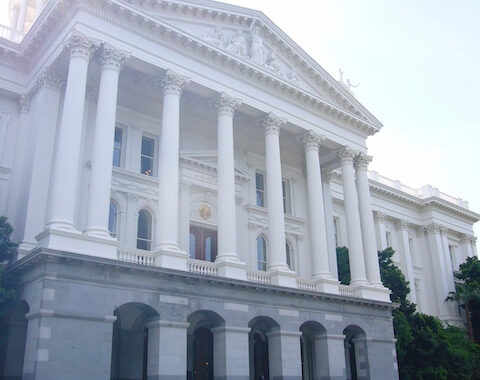
“Ecocide” as international crime
An expert panel commissioned by the Stop Ecocide Foundation has proposed the recognition of “ecocide” as a new international crime in the Rome Statute of the International Criminal Court (“ICC”). The ICC already recognizes genocide, crimes against humanity, war crimes, and the crime of aggression. The ICC is the only global mechanism which directly weighs in on the criminal justice systems of its 123 member states.
It has been 75 years since the phrases “genocide” and “crimes against humanity” were first used in the Nuremberg Trials. But why a new crime now? Per the Foundation: “Innovation and change on a major scale are required for humanity to thrive sustainably. Ecocide law can level the playing field for solutions and stimulate development in a healthy direction in all areas, while providing a guardrail (enforceable deterrent) to ensure best practice. Beyond that, it has the power to strongly shift cultural assumptions and our understanding of our place in, and responsibility towards, the natural world.”
In 2010, activist and attorney Polly Higgins presented the following definition of ecocide to the UN Law Commission: “Ecocide is extensive loss, damage or destruction of ecosystems of a given territory(ies) … such that the peaceful enjoyment of the inhabitants has been or will be severely diminished.”
Since late 2019, 8 ICC member states (Vanuatu, Maldives, France, Belgium, Finland, Spain, Canada, and Luxembourg) as well as the Pope and the EU have publicly expressed interest in the possibility of amending the Rome Statute. In-principle support for the crime of ecocide at the Inter-Parliamentary Union, comprising delegations from 179 parliaments around the world was virtually unanimous in May 2021. Proposals of law and/or parliamentary motions have been submitted in Belgium, France, Bolivia, Portugal, Sweden, Brazil.
This step is promising in times of continued and worsening climate change, habitat loss, species loss, coral reef destruction, and many other dire symptoms of the damage we are causing to our own planet as well as our own physical and mental health. But will it help? Despite longtime, worldwide agreement that genocide is unacceptably horrible, it still takes place to this day (just think Rohyngia, Yazidi, and Bosnia). The same can be said for “crimes against humanity” (for example, forced removals, imprisonment or deprivation of physical liberty that violates international laws, forced prostitution and rape; discrimination and tyranny against certain groups and many other inhumane acts).
Nonetheless, it is abundantly clear that the global society needs to take action on the environmental front from a multitude of angles. Recognition of ecocide at the top international level would be more than simply a good signal; it would enable prosecutions of actions that may have as broad and severe effects as the currently recognized international crimes. It will be interesting to see further developments in this area and how non-actions will be addressed. For example, climate change is caused by the lack of action by many state and private parties. But again, the recognition of detrimental environmental issues as crimes would be major.



